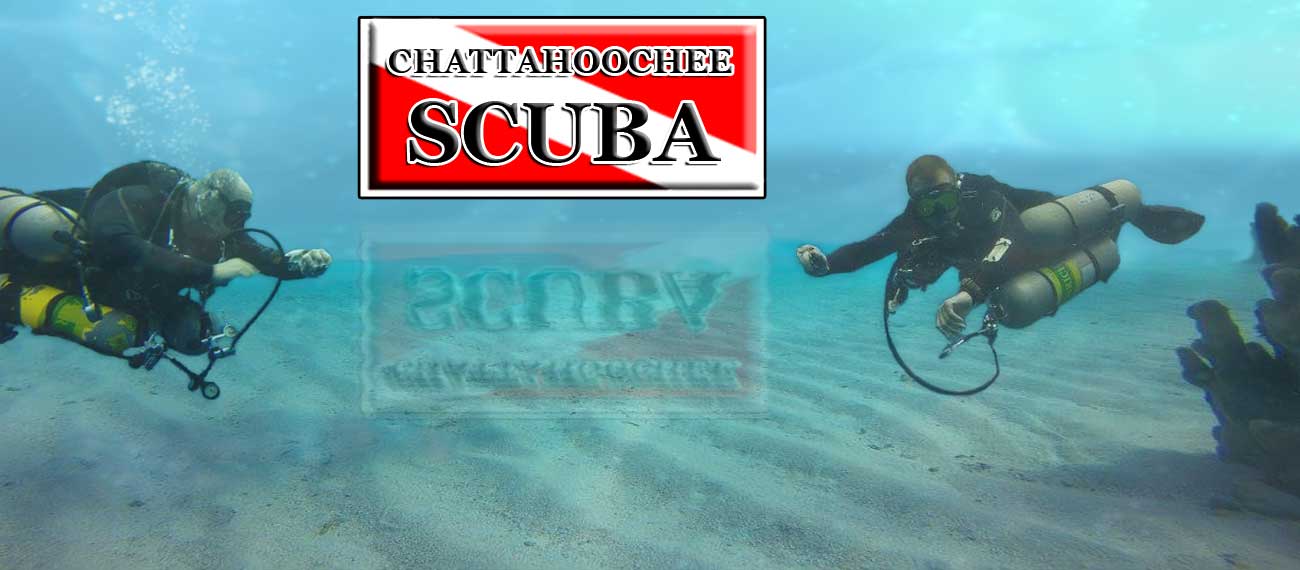

There are many different diving and non-diving courses from which to choose, but which ones do you take to get you where you want to go? Read the questions below to learn about some of the different paths you could follow to get from your current level of certification to the professional level that interests you most. In each example, a base path is shown as well as other career broadening opportunities. In most cases, in order to remain competitive, the modern diving professional needs to show that they have a broad experience in different areas of the dive industry, not just meet the minimum.
We understand that Professional Courses can become expensive. In order to reduce this stress and help keep you on your professional path, we developed a financial assistance program. If you are interested in learning more about this option, please contact us at 706-507-2573 and ask for Josh.
In order to provide a more-well rounded dive educational experience, students are invited to take any of our dive industry familiarization courses. These optional courses are provided free to students enrolled in any of our professional level programs. The current course offering includes Introduction to Dive Center Operations, Intermediate Point of Sale Software Use (EVE), Conducting Non-Diving Aquatic Programs, and Resume Writing for the Dive Professional.
The Introduction to Dive Center Operations course provides the student with a greater knowledge and firsthand experience with what it takes to manage/operate a dive center.
The Intermediate Point of Sale Software Use course educates the student in some of the more advanced capabilities that the Electronic Virtual Employee (EVE) software package has to offer dive professionals.
The Conducting Non-Diving Aquatic Programs course enlightens the student as to other possible revenue and diver sources that often compliment a dive center's core programs.
The Resume Writing for the Dive Professional course prepares the student to professionally present themselves to a perspective dive industry employer.
Divemasters are employed in many aspects of the diver industry. From leading certified divers, to working on boats, to assisting instructors, the divemaster must master many skills.

In order to be more employable, a divemaster must normally obtain additional certifications. Here are some of the more common ones. Additionally, many divemasters are also Open Water Scuba Instructors. An OWSI who becomes certified to teach these and other specialties is a valuable asset to any dive operation.
An Open Water Scuba Instructor is the starting certification needed to train divers. All of the other instructor level certifications are built off of the knowledge you gain in this course. An OWSI can certify Open Water Divers, Advanced Open Water Divers, Rescue Divers, Divemasters, Peak Performance Buoyancy Specialty Divers, teach the Project AWARE Specialty course, the Coral Reef Conservation Specialty course, and the Emergency First Response courses (if an EFRI also).

An Open Water Scuba Instructor can conduct core courses, but in many regions additional training is still highly prefered. Here are some of the more common courses other OWSIs have taken.
Public Safety Diving training is rapidly becoming a requirement for membership on a first responder dive team. Law enforcement, fire, and emergency response teams respond to recover evidence or victims in the water. These dive sites are often hazardous and demanding for divers. Training helps mitigate this risk and improves the efficiency of a first responder dive operation. Below are a recommended series of courses to help you improve your public safety diving skills and knowledge.

Public Safety Divers often must dive at sites with hazardous or difficult conditions. Taking a broad selection of courses will help you improve your dive skills and make it easier ans safer for you to conduct these dives. Here are some of the more common courses other Public Safety Divers have wanted.
If you have questions, please contact us so we can help you select the best courses to meet your goals.
Dive centers around the world need trained, qualified individuals to blend gases and service cylinders. Few divers understand the work needed to maintain the equipment they use to dive. Cylinders used to blend gas, as well as their valves need to be periodically inspected, serviced and cleaned. Preparing enriched air blends and trimixes is a mix of art and science. Skilled technicians are needed to accurately prepare them.

In addition to taking classes on regulator repair and servicing, consider taking those listed below.
If you have questions, please contact us so we can help you select the best courses to meet your goals.
As an senior instructor, you have developed a solid diving background and accumulated years of experence. It is time to pass that knowledge and experience on to beginning instructors. In this course you will learn techniques to help train instructor candidates and independently certify Assistant Instructors.

If you have not done so already, consider broadening your dive resume. You may want to learn about becoming a Technician, Technical Diver, or Medical Instructor. Each of these areas helps to add to your dive knowledge and skills and make you not only a better diver, but a better instructor trainer as well.
If you have questions, please contact us so we can help you select the best courses to meet your goals.